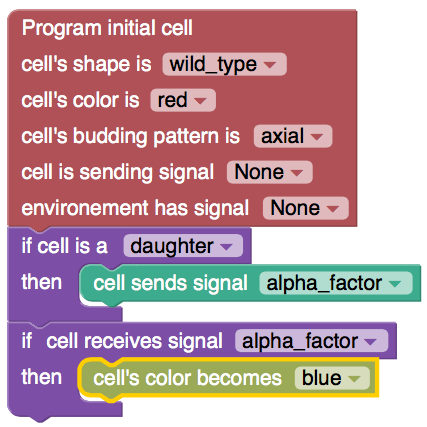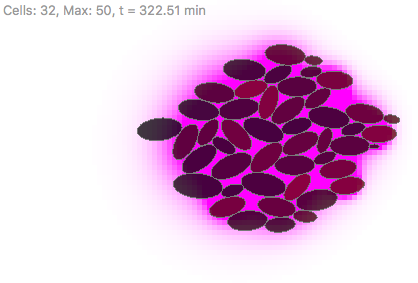Twitter and biosecurity|dual-use (ongoing)
This is an ongoing early stage project in which I get data from twitter into a CouchDB. I am building a website to visualize my compiled data with flask. I do some natural language processing for sentiment analysis. One of my goal is to find dual-use topics… My most frequent words so far… I am …
Low-cost, modular, multi-strain diagnostic (ongoing)
This is the application part of the project I am finishing. We engineered yeast to induce growth arrest using a number of genes/inducers that we then characterized. We then used them as a diagnostic tool. We used nonlinear differential equations. We model our co-culture experiments and made predictions. We used a flow cytometer to collect …
Synthetic control of yeast culture growth rates (ongoing)
I am finishing a project started as a postdoc in the Klavins Lab at UW with Orlando de Lange and Alberto Carignano that we are about to publish. We engineered yeast to induce growth arrest using a number of genes/inducers that we then characterized. We then used it in a cool application. I work both …
Design of Languages for Systems and Synthetic Biology
Context We propose to encompass context-dependent genomic information and mathematical models in a logical and structured fashion through the use of attribute grammars. Attribute Grammars (AG) provide means to compute a mathematical model (possibly encoding phenotypic traits) from a genetic construct. AGs are a framework for biological Domain Specifi c Languages (DSLs) that, unlike current formalisms …
ebio·ome: the DNA space explorer.
Talk at SynBioBeta 2017 http://sf2017.synbiobeta.com/speakers/laura-adam/
PACHA.YEAST: Morphogenetic engineering of yeast Microcolonies
Incas regarded space and time as a single concept, referred to as pacha ( Quechua: pacha, Aymara: pacha). A poster of my work on PACHA.YEAST: Highlights: Lab automation with Apprent’yeast: learned patterns to automatically design plasmids from lab data (inferred a probabilistic context-free grammar (PCFG)) Adam, L. & Klavins, E. (2015). archiYEAST: a command-line synthetic yeast …
LYSD: Language for Yeast Spatiotemporal Development
LYSD is a language a created to specify a phenotype. It can be compiled down into a genetic designs, which ultimately can be automatically build into a lab (check out Aquarium from the Klavins lab; I used it with a python API). We could formally verify a programmed phenotype: microscopy images can be analysed and …
Gro for snowflake yeast
Gro is a software written in C++ using QT. Gro is a programming language and a 2D simulation environment for cells. The physics and front end has been implemented for e.coli. Specification and simulation of synthetic multicelled behaviors. Jang SS(1), Oishi KT, Egbert RG, Klavins E. Author information: (1)Department of Electrical Engineering, University of Washington, …
Development of a domain-specific genetic language to design Chlamydomonas reinhardtii expression vectors
Authors Mandy L Wilson, Sakiko Okumoto, Laura Adam, Jean Peccoud Publication date 2013/11/8 Journal Bioinformatics Volume30 Issue2 Pages 251-257 Abstract Motivation: Expression vectors used in different biotechnology applications are designed with domain-specific rules. For instance, promoters, origins of replication or homologous recombination sites are host-specific. Similarly, chromosomal integration or viral delivery of an expression cassette imposes specific …


